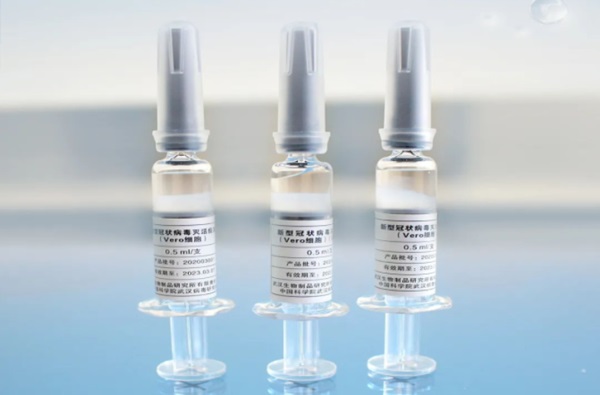¿Cuánto tiempo pueden permanecer las vacunas contra la gripe fuera del refrigerador?
Dec 09, 2024
Introducción
Las vacunas contra la gripe juegan un papel fundamental en la protección de las personas de la influenza. Sin embargo, su efectividad depende del almacenamiento y el manejo adecuados. La exposición a temperaturas fuera del rango recomendado puede comprometer la potencia de la vacuna, lo que podría hacerlas ineficaces. Este artículo explora cuánto tiempo pueden permanecer las vacunas contra la gripe fuera del refrigerador y ofrece orientación para diferentes tipos de vacunas.
Tipos de vacunas contra la gripe y sus requisitos de almacenamiento
Las vacunas contra la gripe vienen en diferentes formulaciones, cada una con necesidades de almacenamiento únicas. Comprender estas distinciones es crucial para mantener su eficacia:

Vacunas de influenza inactivadas (IIV)
Estas vacunas deben almacenarse a temperaturas entre +2 ° C y +8 ° C y nunca deben congelarse.
- Pueden tolerar la temperatura ambiente brevemente, generalmente por no más de 30 minutos.
-
<33
Vacunas de influenza atenuadas en vivo (laiv)
-
Altamente sensible a los cambios de temperatura, LAIV también debe mantenerse a +2 ° C a +8 ° C.
- La exposición a la temperatura ambiente no debe exceder los 15 minutos.
<32
<33
<34 Vacunas de influenza recombinantes (RIV) <35
<36
<37 RIVS comparten requisitos de almacenamiento similares ( +2 ° C a +8 ° C) y son ligeramente más tolerantes a la temperatura ambiente. <38
<39 Sin embargo, no deben permanecer a temperatura ambiente durante más de 1 hora. <40
<41
<42
<43
<44
<45 Requisitos generales de almacenamiento para vacunas contra la gripe <46
<47 El almacenamiento adecuado es clave para preservar la potencia de la vacuna. <48
<49
<50
<51 Rango de temperatura <52 Todas las vacunas contra la gripe deben almacenarse en un refrigerador mantenido a +2 ° C a +8 ° C. La congelación puede causar daños irreversibles. <53
<54
<55
<56 Equipo de almacenamiento <57 Usar <58 refrigeradores de grado médico equipados con sistemas de monitoreo de temperatura <59. Minimice las aberturas de las puertas para mantener un entorno estable. <60
<61
<62
<63
<64
<65 Impacto de la temperatura ambiente en diferentes vacunas contra la gripe <66
<67
<68
<69 Las vacunas contra la influenza inactivadas (IIV) <70 IIV son relativamente estables, pero no deben permanecer a temperatura ambiente (alrededor de 22 ° C) durante más de 2 horas. La exposición prolongada reduce su efectividad. <71
<72
<73
<74Las vacunas contra la influenza viva atenuada (laiv) <75 losivs son altamente sensibles; Solo pueden tolerar la temperatura ambiente por hasta 15 minutos. Una exposición más larga puede dar lugar a la pérdida de potencia. <76
<77
<78
<79 Vacunas de influenza recombinantes (RIV) <80 Los RIV pueden soportar la temperatura ambiente por hasta 1 hora, pero deben refrigerarse de inmediato para garantizar la máxima eficacia. <81
<82
<83
<84
<85
<86 Escenarios comunes y manejo adecuado <87
<88
<89
<90 Transporte a corto plazo <91
<92
<93 Use enfriadores aislados con paquetes de hielo para mantener el rango de temperatura requerido. <94
<95 Limite el tiempo de transporte:
<96
<97 IIV <98: hasta 2 horas. <99
<100 Laiv <101: menos de 30 minutos. <102
<103 riv <104: Mantenga la cadena de frío en todo momento. <105
<106
<107
<108
<109
<110
<111 Almacenamiento temporal antes de la administración <112
<113
<114 Si las vacunas necesitan salir brevemente, manténgalas en una paquete de hielo o de hielo. <115
<116 Registre el tiempo y la temperatura para garantizar que permanezcan dentro de los límites seguros. <117
<118
<119
<120
<121
<122 Cómo manejar las vacunas almacenadas incorrectamente <123
<124
<125
<126 Inspeccione la vacuna <127
<128<129 Verifique los signos de violaciones de temperatura utilizando indicadores o dispositivos de monitoreo.
Consulte al fabricante de vacunas o profesionales médicos para determinar la usabilidad.
-
Directrices específicas por tipo de vacuna
<138
<139 IIV <140: Descarte si la exposición excede las 2 horas.
laiv
: deseche después de cualquier exposición prolongada a la temperatura ambiente.
<145 riv
: evaluar la duración y las condiciones de exposición antes del uso.
<149
<150
<151
<152 Prevención y recomendaciones

<154
<155
<156 Mantenimiento de equipos regulares <157
<158
<159 Asegúrese de que los refrigeradores y los sistemas de monitoreo funcionen correctamente. <160
<161
<162
<163
<164 Capacitación del personal <165
<166
<167 Entrenar a los proveedores de atención médica sobre los requisitos de manejo únicos para diferentes tipos de vacunas. <168
<169
-
Utilice equipos portátiles de cadena de frío para emergencias, asegurando que las vacunas permanezcan dentro del rango de temperatura recomendado.
-
<178



